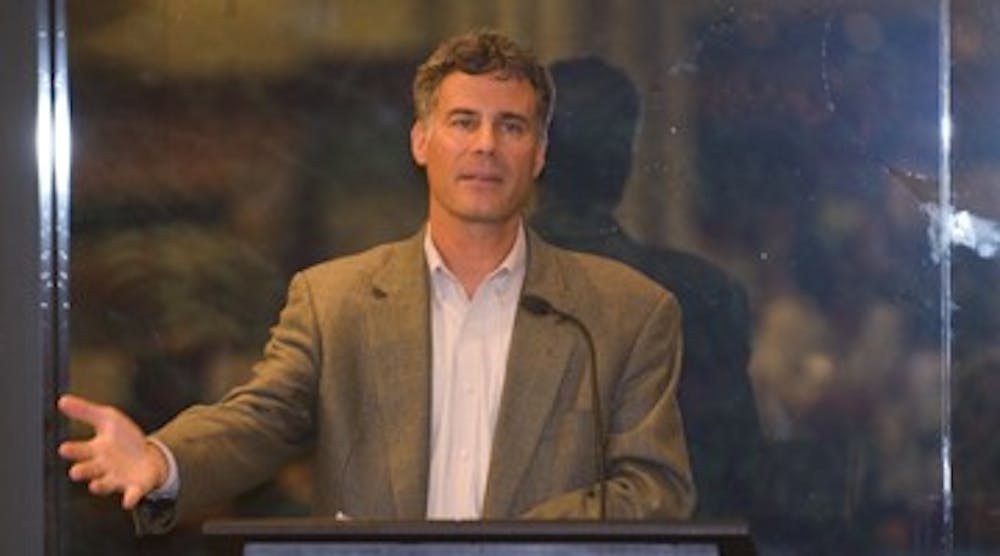According to the rhetoric of some of the Western world's most visible political leaders, poverty and lack of education are to blame for terrorism.
But when Princeton economist Alan Krueger came to the Penn Bookstore last night to promote his new book, What Makes a Terrorist, he told an audience of 22 people that both associations were false.
"The people who tend to participate in terrorism are overwhelmingly drawn from the middle or upper class," he said. He cited a study of 148 Palestinian suicide bombers, which found that terrorists were less likely to be impoverished and more likely to have finished high school than the general population.
What's an economist doing writing a book on terrorism?
Krueger said he applied the same principles of occupational choice in labor economics to the discussion of terrorists. He also cited previous research in Germany, where he found a weak association between hate crimes and poverty.
In addition to the individual terrorist profile, Krueger also pointed to regional data, which showed that neither income per capita nor literacy rates were steady predictors of terrorist rates.
Rather than measures of wealth or education, Krueger said, the statistics point to measures of political oppression.
"Countries that suppressed civil liberties tended to be the homes of terrorists," he said.
The author also addressed the economic and psychological impacts of terrorism, arguing that the economic threat is less dangerous than most tend to believe.
"Our economy is quite robust, or resilient, when it comes to terrorists," he said. "As long as we don't overreact - decide not to go out and shop or not go to events like this one and talk about ideas - only in those instances can terrorism have a large impact on our economy."
Krueger put the threat in perspective on an individual level as well.
"Your chance of dying from your own suicide is almost 500 times more likely than your chance of dying from terrorism," he said. "Terrorism is a risk, but it's not a risk to our way of life."
In addressing the terrorist threat, Krueger said part of the solution is "protecting civil liberties at home and abroad." In addition, he asserted, "we need to engage with the terrorist organizations, and we need to realize what the grievances are." Wharton sophomore Anthony Orlando found the event to be worthwhile.
"I came because Krueger is one of America's foremost economists, and this was a new topic for him to tackle," he said. "I think it was interesting and valuable that he was able to shed some light on a crucial aspect of our foreign policy."
"I came because I didn't know much about terrorism, said College senior Jessica Weinstock. "He definitely dispelled some of the previous ideas I had about what makes a terrorist."



